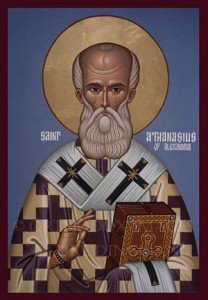Athanasius, bishop of Alexandria in the fourth century, says much the same thing as Tertullian about heresy in his critique of his Arian adversaries. “How,” Athanasius asks, “can they deny that this heresy is foreign, and not from our fathers? But what is not from our fathers, but has come to light in this day, how can it be but that of which the blessed Paul has foretold, that ’in the latter times some shall depart from the sound faith, giving heed to seducing spirits and doctrines of devils’?” It seems that whenever we fail to turn to the fathers for guidance, we fall into error.
This is why, I believe, that the Eastern Church was spared the fractionalization that has transpired in the West. The Eastern Church has tenaciously adhered to the teachings of the fathers and the teachings of the first seven councils.
Heresy, then, is the willful propagation of a position or perspective that runs against the grain of apostolic teaching and tradition. It is typically linked to specific personalities, precisely because at the core of heresy is often an individual’s intention choice to advocate and promote a teaching that the church has not communally received and cannot discover in or reconcile with the teaching of the apostles. Athanasius himself comments that heresy is often marked by the name of its teacher, specifically because it is that teacher’s unique doctrine that sets a group apart from the church at large. Eastern Christians, in particular, on the other hand, are marked by their refusal to link themselves with any other name than that of Christ.
If we look at all the various Christian sects in the West, we see that they all have been linked to particular persons who either rightly or wrongly decided to separate themselves from the Western Church. (One has to truly admit that frequently these separations were due to accesses that were present in the Western Church at the time).
Hopefully I have shown over the weeks that the Eastern Church has worked, throughout her history, to come to the truth through strenuous debate and argument. The end truth has always been achieved by accepting a consensus opinion.

